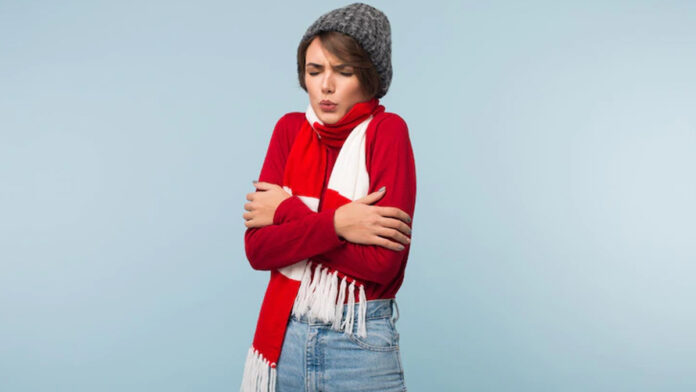Feeling colder than others during winter can happen due to several reasons, ranging from natural differences in body physiology to underlying health conditions. Let’s break it down:
1. Differences in Body Composition
- Low Body Fat: Fat acts as insulation. If you have less body fat, your body loses heat more quickly, making you feel colder.
- Muscle Mass: Muscle generates heat. Less muscle mass may reduce your body’s ability to stay warm.
2. Circulation Issues
- Poor blood flow can make extremities (hands and feet) feel cold. This could result from:
- Raynaud’s Syndrome: A condition where blood vessels narrow in response to cold.
- Low Blood Pressure: Reduced blood flow can limit heat delivery to extremities.
3. Hormonal Imbalances
- Thyroid Function: Hypothyroidism (an underactive thyroid) slows metabolism, reducing heat production.
- Low Iron Levels: Iron is essential for carrying oxygen in the blood. Without enough, your body struggles to regulate temperature.
4. Gender Differences
- Women often feel colder than men because they typically have lower metabolic rates and different fat distribution, focusing on protecting vital organs rather than heat retention in extremities.
5. Nutrition and Hydration
- Dehydration: Water helps regulate body temperature. Without enough, you may feel cold.
- Calorie Intake: Eating less in winter can slow metabolism, reducing your body’s heat production.
- Deficiencies: Low levels of Vitamin B12, Iron, or Magnesium can impact temperature regulation.
6. Health Conditions
- Anemia: Iron or B12 deficiency anemia can cause constant cold feelings.
- Diabetes: Poor blood sugar control can lead to nerve damage (peripheral neuropathy), which might reduce warmth sensations.
- Low Blood Sugar: Skipping meals can make you feel cold.
7. Metabolism and Activity
- Low Metabolic Rate: Your body’s ability to generate heat is linked to metabolic activity. A slower metabolism means less heat production.
- Inactivity: Physical movement generates body heat. Sedentary lifestyles can make you feel colder.
8. Aging
- As we age, the skin thins, and blood circulation slows, making older adults more sensitive to cold.
How to Stay Warm
- Layer Clothing: Wear thermals or insulated materials.
- Stay Active: Physical movement generates heat.
- Eat Warm Foods: Include soups, ginger tea, and jaggery for warmth.
- Hydrate: Drink warm water to improve circulation.
- Check Health: Test for anemia, thyroid levels, or other deficiencies if cold feelings persist.
By understanding these factors, you can manage the issue better and ensure warmth during winter! Let me know if you want tips specific to your situation.



